
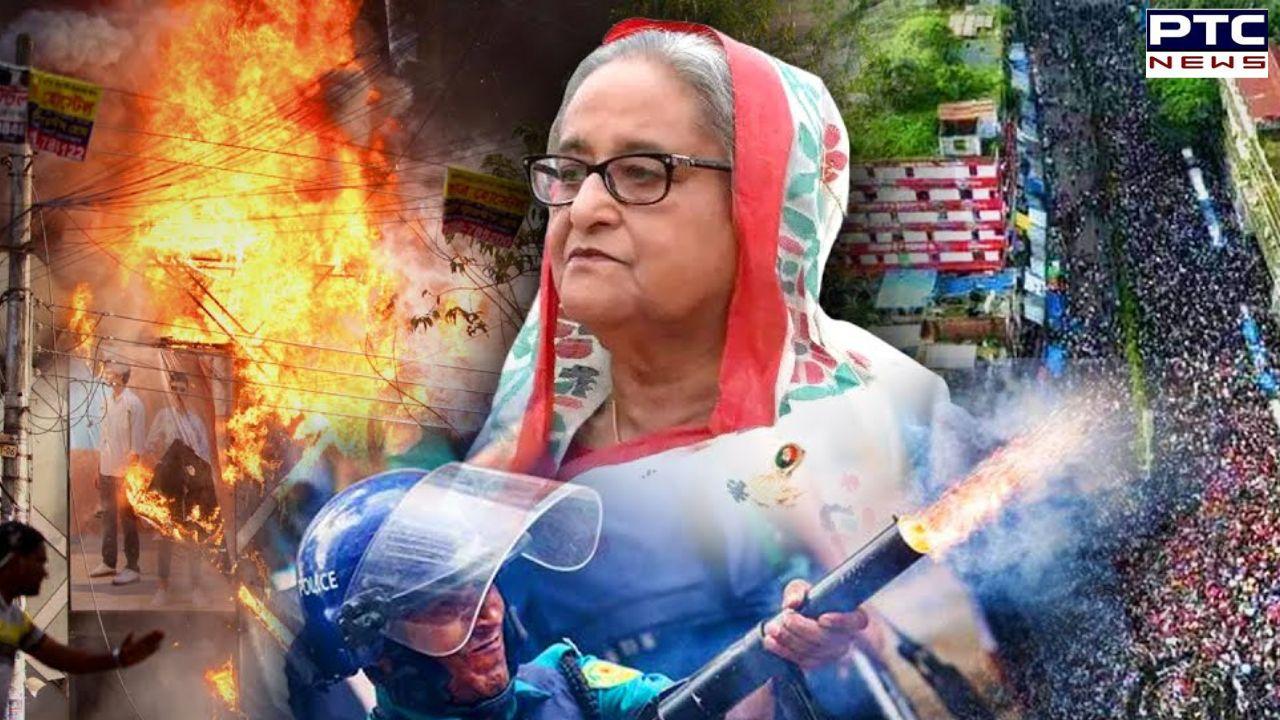
Bangladesh Unrest: Mobs target Hindus amid political turmoil following Sheikh Hasina's ouster| IN DETAIL
Bangladesh Unrest: What started as peaceful student protests over a quota system for government jobs has escalated into a major challenge against Sheikh Hasina and her ruling Awami League party. The situation reached a critical point when local media reported that Sheikh Hasina resigned and fled the country via an Army helicopter after protesters announced plans to march to Dhaka, the capital, on Monday. This follows a weekend marred by violence, resulting in numerous casualties.
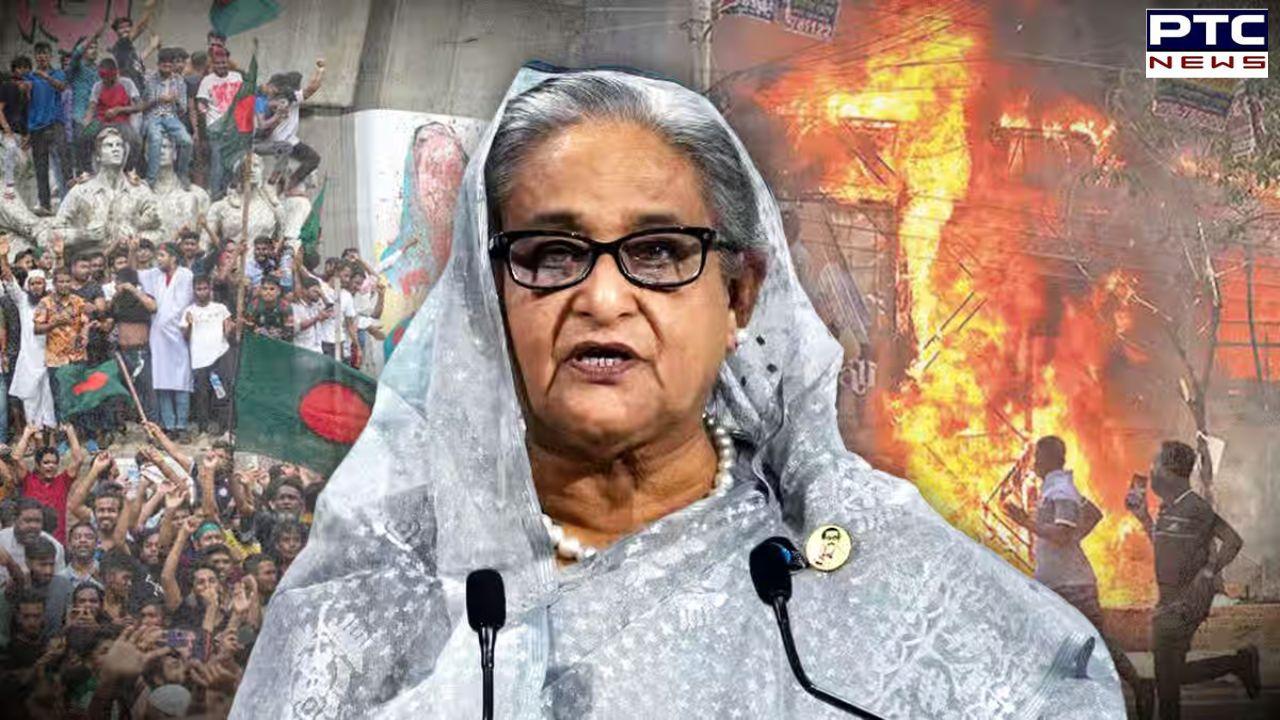
In Bangladesh, numerous Hindu temples and businesses have been attacked by violent mobs following the ousting of Prime Minister Sheikh Hasina, as reported by a community association. Despite leaders of the movement that brought down the Awami League government urging people not to target the Hindu minority, there are growing concerns for their safety. On a positive note, there has been support for Hindus, with some temples being jointly protected by both Muslims and Hindus.
Hindus make up nearly 8 percent of Bangladesh's population of 17 crores. Many in this community have historically supported Sheikh Hasina's Awami League due to her strong ties with India and the party's secular stance, in contrast to the opposition's hardline factions.
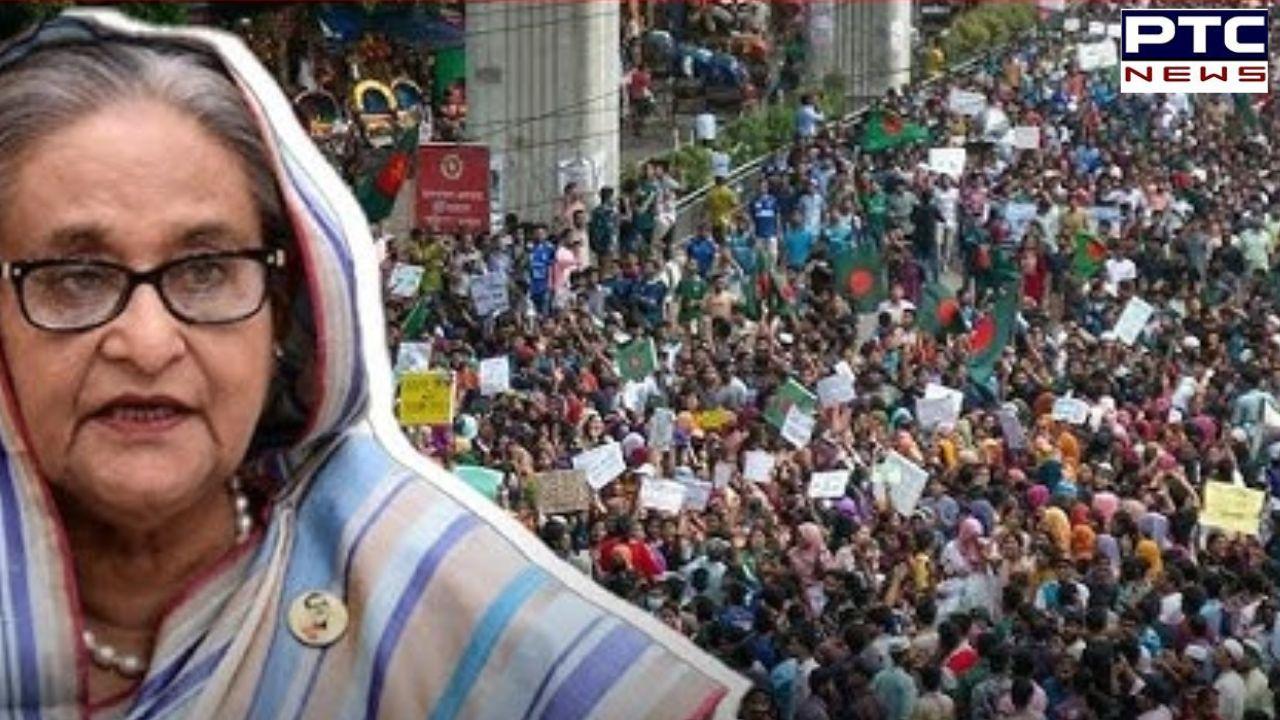
With the government overthrown and the new administration not yet in place, mobs are causing chaos, attacking police stations, prisons, homes of Awami League leaders, and Hindu establishments.
As Sheikh Hasina’s kingdoms fall, palace gates open wide. Protesters in Dhaka mirrored this, storming the PM's mansion, Ganabhaban, after Sheikh Hasina resigned and fled.
Such events have occurred in Afghanistan, Iraq, and Sri Lanka. Several videos are going viral where demonstrators can be seen entering Hasina's home, claiming victory.
A viral video shows a man lounging on her bed, declaring control. Another video depicts looters taking TVs, chairs, tables, and feasting on fish and biryani from the kitchen. Hasina's sarees, Dior luggage, and even female underwear were stolen, marking a chaotic and grim scene at Ganabhaban.
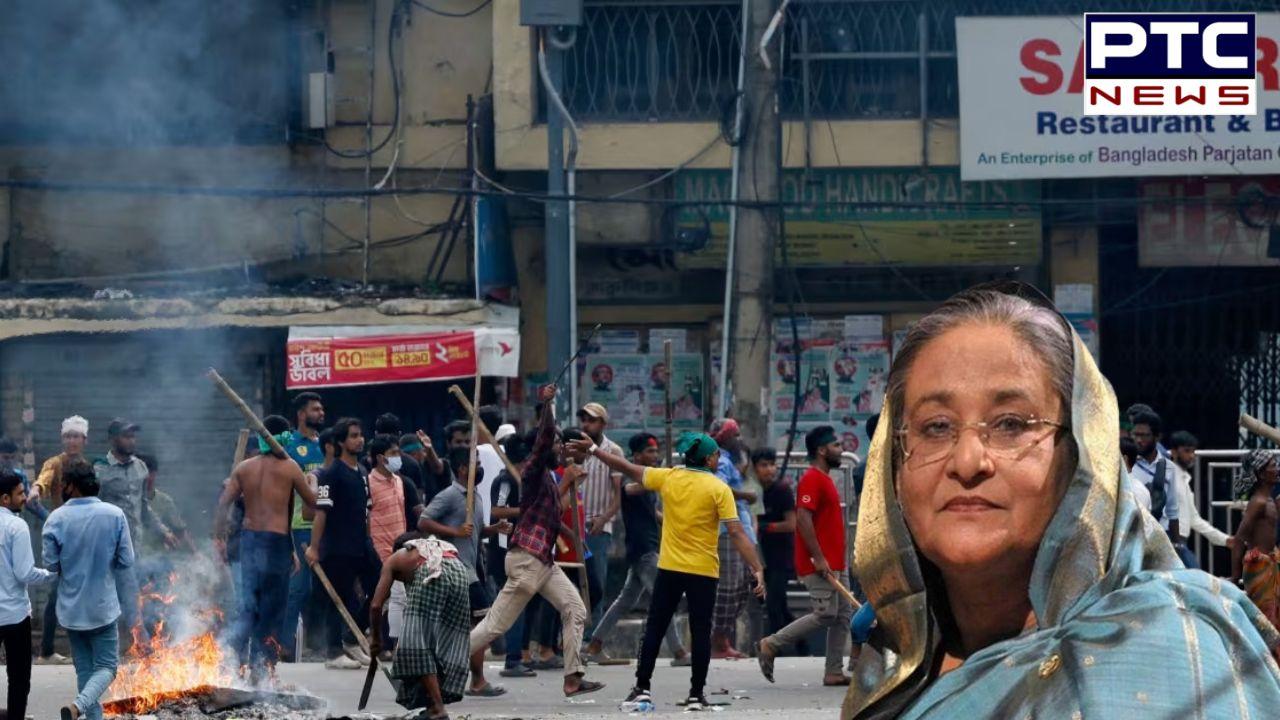
The mass protests in Bangladesh began with student demonstrations demanding reforms to the civil service quota system. Students argued that the existing quotas unfairly benefited loyalists of Prime Minister Sheikh Hasina’s ruling party, the Awami League. The quotas reserved a significant portion of government jobs for certain groups, including children of 'freedom fighters' from Bangladesh's 1971 independence war, which many students felt was unjust.
As the protests grew, demonstrators expressed broader discontent with Hasina’s government, which they accused of autocratic practices and suppressing dissent. The government’s initial response, which included closing schools and universities, failed to ease the unrest. Instead, it seemed to embolden the protesters further.
A Supreme Court ruling against reintroducing job quotas did not fully satisfy the protesters. While the ruling was viewed by some as aligning with Hasina’s government, it did not address the protesters' demands to abolish all job reservations, leading to continued unrest.
In the midst of the demonstrations, Nobel laureate Muhammad Yunus was named principal adviser to Bangladesh's interim government on Tuesday. The 84-year-old Yunus, also referred to as the "banker of the poor," was appointed after a pivotal meeting that was presided over by President Mohammed Shahabuddin. He was the leading candidate for the position among the students in protest.
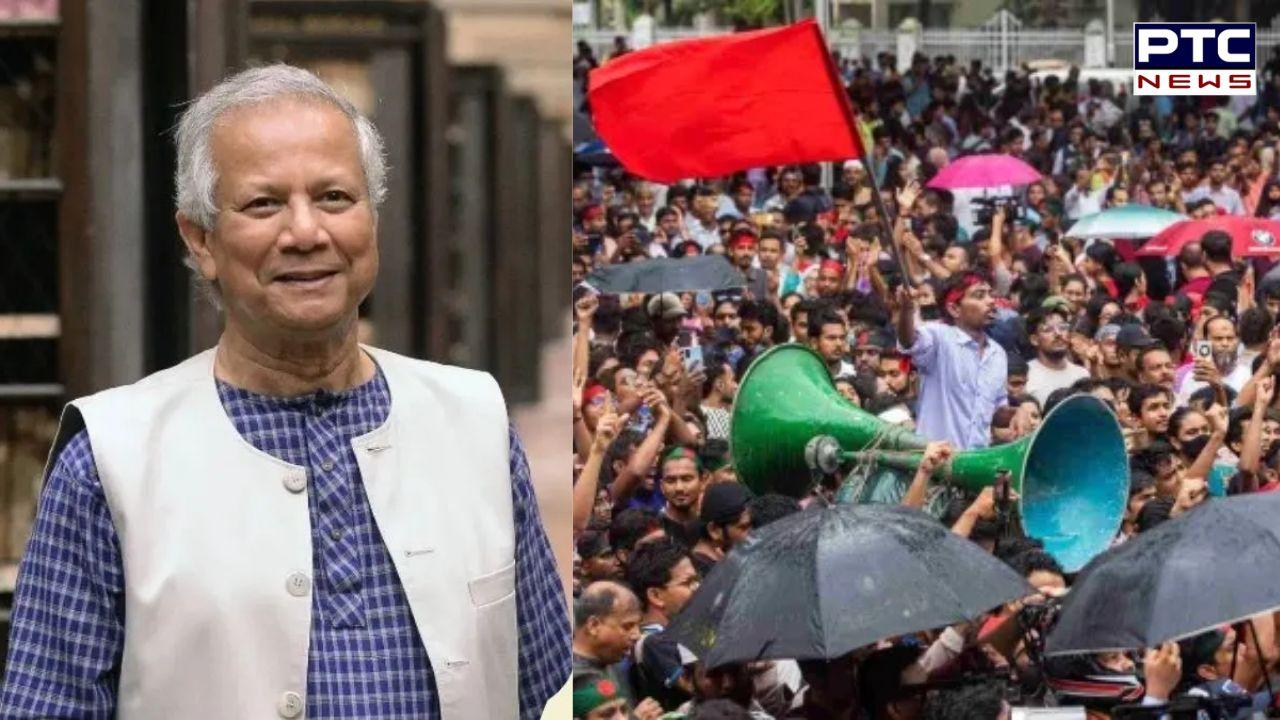
- With inputs from agencies
